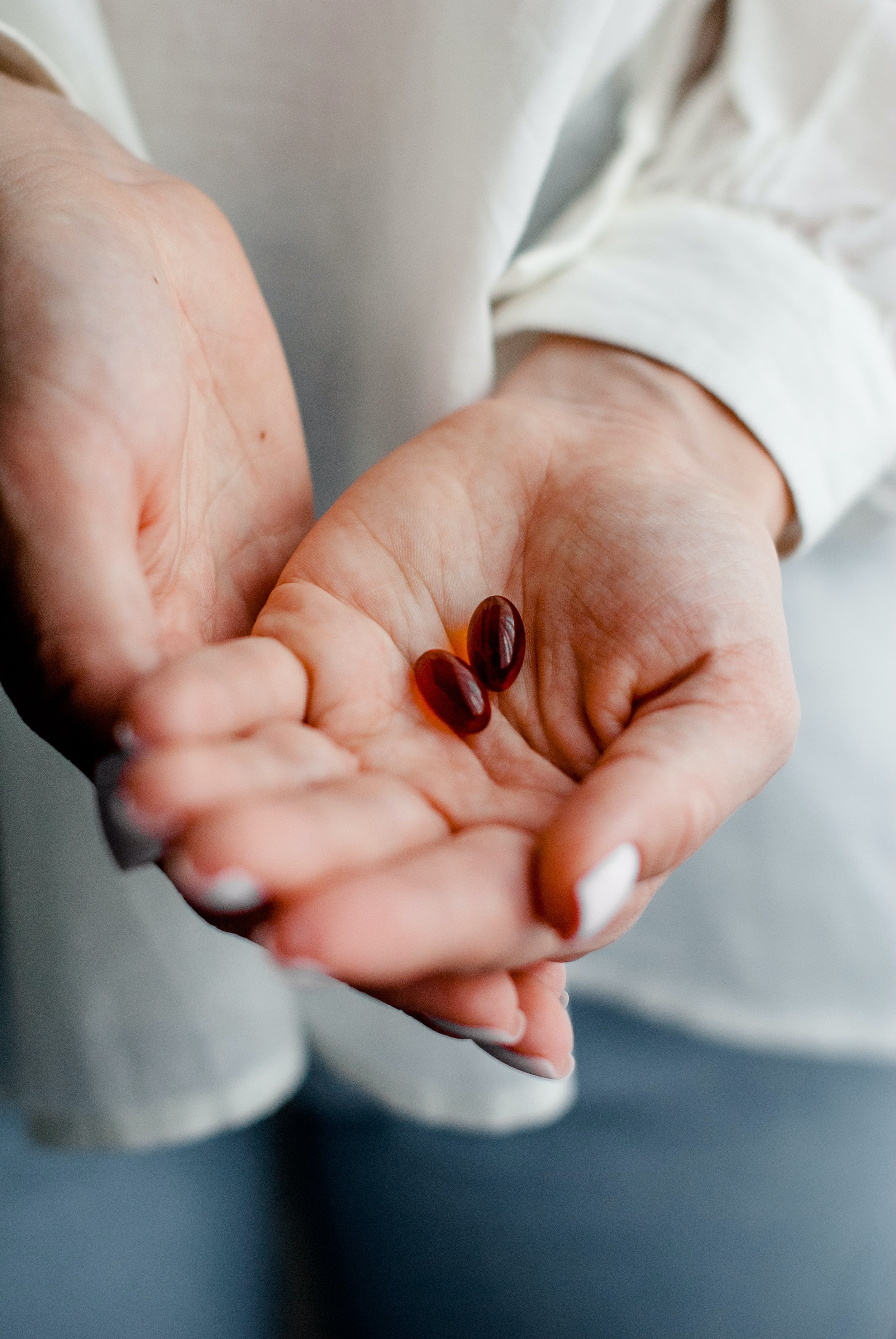Ibuprofen (Advil) For Pain Along Side Acupuncture Treatments?
Many patients who begin acupuncture treatment are curious to know if they can continue taking painkillers alongside their sessions. The answer is multifaceted. As a Doctor of Traditional Chinese Medicine (Dr. TCM), I am often queried: “Can I take ibuprofen after my acupuncture treatment?” Ibuprofen or Advil is an over-the-counter Nonsteroidal Anti-Inflammatory Drug (NSAID) used to treat fever, pain and inflammation. This can encompass period pain, headaches, migraines, rheumatoid arthritis, and more. Common NSAIDs include drugs like: Acetylsalicylic Acid (Aspirin, Bufferin, Excedrin); Ibuprofen (Motrin, Advil); and Naproxen sodium (Aleve and Naprosyn). These drugs supress inflammation by inhibiting COX-1 and COX-2 (pro-inflammatory prostaglandin) activity.
In my opinion there is no reason why anyone should refrain from NSAIDs like ibuprofen post-acupuncture. Acupuncture aims to reduce symptoms and speed recovery. If there is a need to take an NSAID to mitigate pain, it seems rational to do so. NSAIDs like Ibuprofen treat pain by blocking inflammation. No inflammation = no pain. Yet from a Chinese Medicine perspective, is this a successful approach for healing?
Ibuprofen is effective for short-term pain relief, i.e., stress headaches or muscle aches post-workout. Yet for prolonged chronic pain, such as fibromyalgia or recurring menstrual pain, I observe that acupuncture is often a better, more effective, and safer option.
Different stages of recovery
There are 3 stages to recovery from injury: 1) inflammation; 2) cell proliferation, and 3) re-modelling. The body inflames to promote repair and inflammation indicates that the body is restoring itself. Overexerting yourself during exercise engenders soreness. This is the body recovering and rebuilding from the strain it has undergone. It is important to know that dosing up on anti-inflammatory meds like ibuprofen prevents inflammation and can interfere with this process, thus prolonging healing.
Whereas anti-inflammatories slow healing at the cost of no pain, acupuncture expediates healing at the cost of slight discomfort. Short term, taking Advil is reasonable for many. Yet for long-term ongoing pain, anti-inflammatory medications can hinder the body’s healing process, prolong the issue, and even cause further complications. Frequent NSAID use can, for instance, cause stomach ulcers.
Acupuncture for pain
Acupuncture treats pain by placing needles at specific points in the body stimulate endorphins, your body’s natural painkillers. Endorphins change and redirect your body’s blood flow. By increasing blood flow to a damaged area of the body, the healing process accelerates.
It is apparent that at present we do not treat pain very successfully in North America, and we only need to look at the opioid crisis to see this illustrated in everyday life. Each day, folks are placed on opioids, and this has caused a public health crisis, the outcome of which is fragmented families, costly addictions, and overdoses. Part of the way to begin solving this issue is to re-evaluate our reliance on medications like ibuprofen and to explore modalities like acupuncture for constructive long-term treatment and pain relief.
What to expect during a treatment
What can you expect during an acupuncture treatment targeting chronic or acute pain? I suggest seeking out a Registered Acupuncturist (R.Ac.) who will possess the training and skillset to actively assess, monitor and treat your pain effectively. During your initial appointment, a detailed consultation will occur with us, where your chief complaint will be investigated as well as overall health and past medical and health history. Our practitioners may take your pulses and observe your tongue to further assess and diagnose both the root cause and symptomatic branch manifestations of your illness.
During acupuncture treatment, sterile, single-use needles will be inserted into the skin and muscle layer and retained for 20-45 minutes depending on practitioner discretion and the outlined conditions. Additional modalities like cupping, moxibustion, guā shā scraping, and tuīná massage may be employed. Post-treatment your practitioner will outline a treatment plan, typically 6-12 acupuncture sessions for acute pain and several sets of sessions for more chronic issues.
Acupuncture effectively treats acute and chronic pain of all types – headaches, migraines, fibromyalgia, frozen shoulder, traumatic injuries, neck pain, osteoarthritis, peripheral neuropathy, piriformis syndrome, plantar fasciitis, postoperative pain, rheumatoid arthritis, sciatica, sports injuries, tennis elbow, trigeminal neuralgia, etc.
In addition to pain modulation, acupuncture is effective for autoimmune conditions, allergies, stress, anxiety, depression, common colds, skin conditions, digestive disorders, facial palsy, fatigue, insomnia, high or low blood pressure, thyroid conditions, asthma and sinusitis, sexual dysfunction, side effects of chemotherapy and radiation, stroke rehabilitation, numbness and tremors, substance addiction and withdrawal, incontinence, enlarged prostate and vaginitis, hot flashes and night sweating, tinnitus, blurred vision, dry eyes and floaters, diabetes, menstrual regulation, fertility, morning sickness, breech presentation and labour induction. Read our blog on what else you can use acupuncture for.
Written by Dr. Agni Larsen
Dr. Larsen is a Doctor of Traditional Chinese Medicine, she is passionate about demystifying acupuncture and Chinese Medicine and introducing patients to its practical and effective therapeutic benefits.


